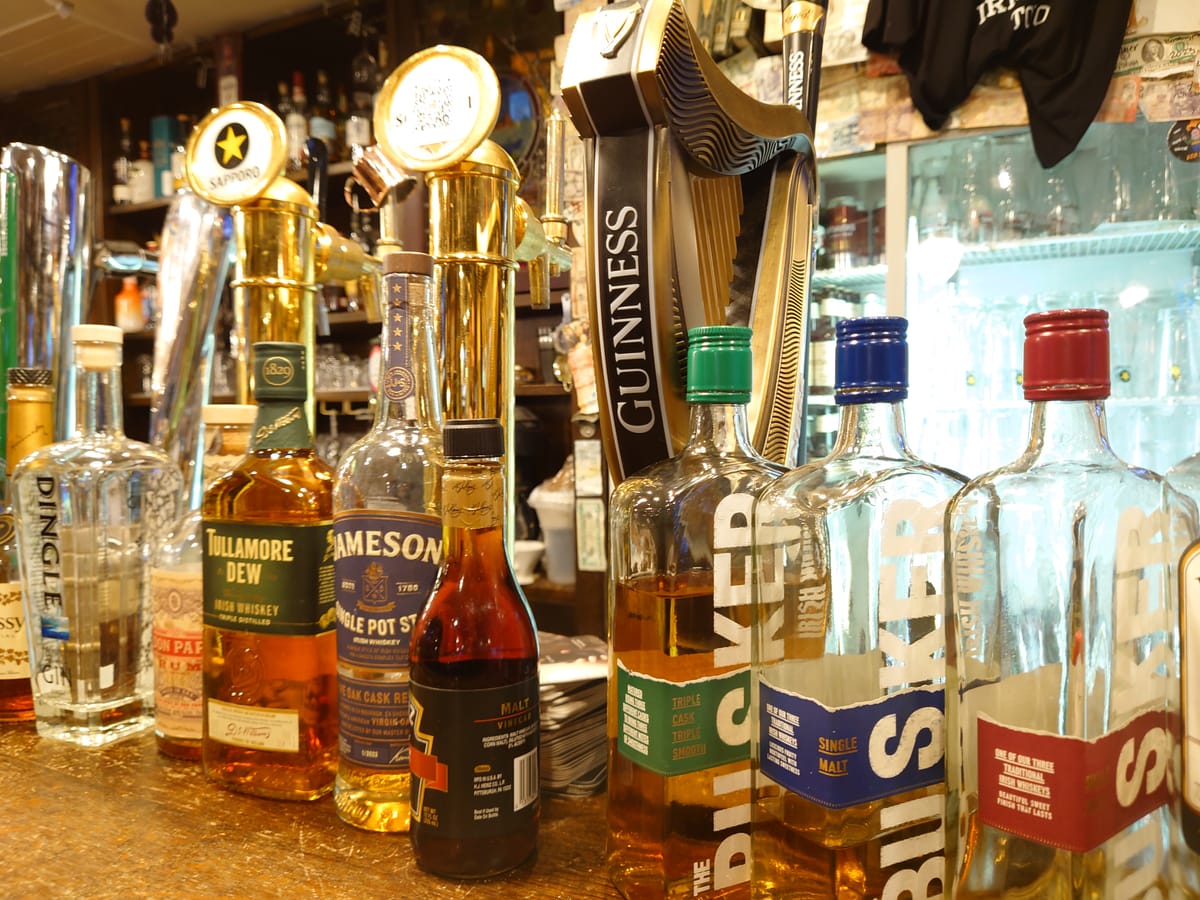Beyond the business plan: Essential steps for F&B success in Japan
Tokyo's JR Yoyogi Station's east exit leads to a block packed with izakayas, a diverse range of restaurants such as sushi and Korean BBQ, creating a vibrant atmosphere. Just a short stroll from this scene, you'll find yourself transported to Ireland.
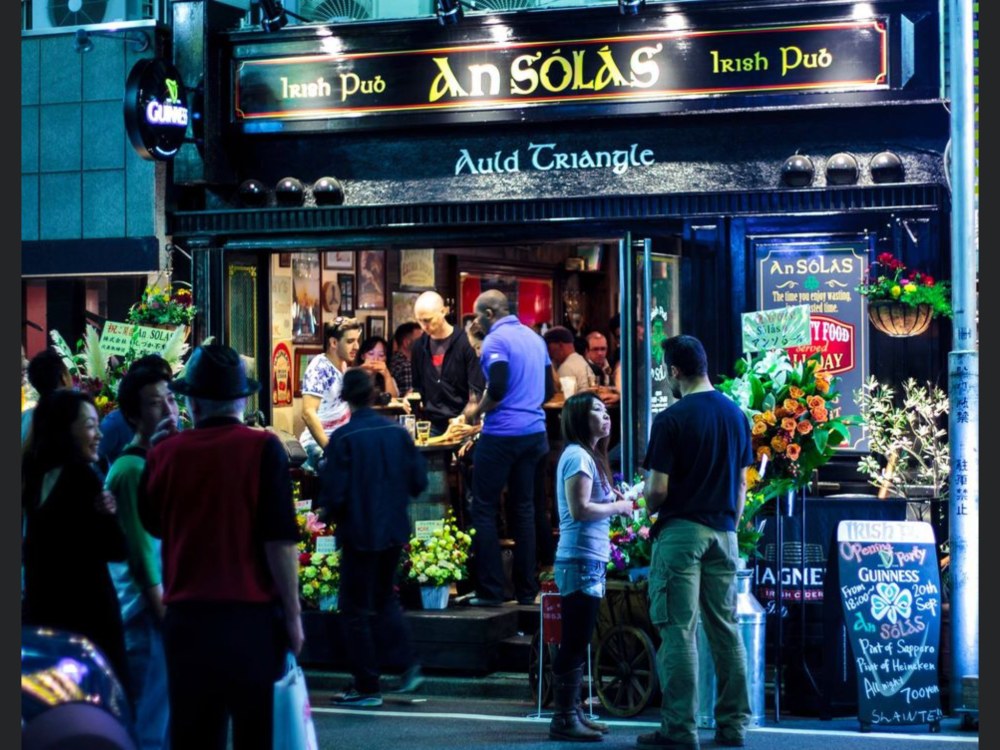
AN SÓLÁS, an authentic Irish pub, occupies the ground floor of an old building. Tucked away from the bustling izakaya scene, AN SÓLÁS provides a lively yet comfortable setting. William Ryan, one of the pub's owners, also leverages his experience to consult with foreigners looking to open restaurants in Japan. What are the essential steps to launching and running a successful F&B business in Japan? We sat down with William to find out.
Summary
'Triangle' finds strength in mutual respect and ego-free management after arguments
Craft a solid business plan and financial projections... unless you're letting Gen-AI run the show
Is it really a good reason to open a bar or cafe?
Don't let the paperwork scare you: Opening an F&B business in Japan
Business Profile
AN SÓLÁS (Irish Pub)
Japan Hospitality Consultants (Consulting on food and beverage businesses)
Location: Yoyogi, Tokyo
Interviewee: William Ryan 🇮🇪
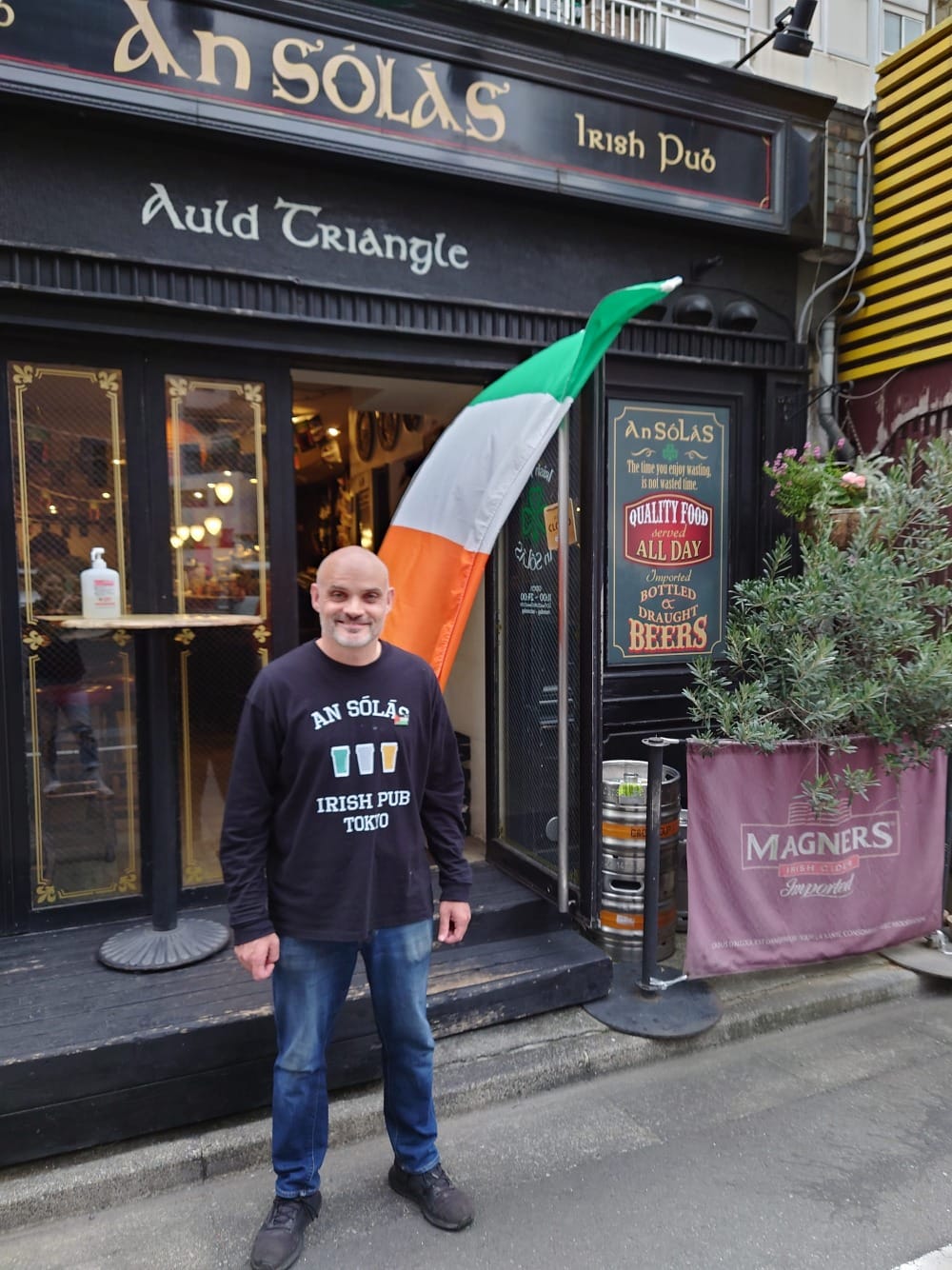
'Triangle' finds strength in mutual respect and ego-free management after arguments
William Ryan: There weren't many izakayas when we opened the pub here in 2014. Even a construction guy was like, 'ビミョー (bimyo, Meh)'. The area got busier only about five years ago or so.
Yumiko: It's difficult to imagine after looking at the area. So, you've been here for ten years.
WR: Yes, we opened AN SÓLÁS in 2014. Before that, it took us two years to open up with all the paperwork. Even with Japanese business partners, we found it quite tough to get through.
Y: How is the pub operated?
WR: AN SÓLÁS is run by a company called Auld Triangle, as it's run by three people: Chieko-san, Atsushi-san and me. Chieko-san manages the floor and bookkeeping, and Atsushi-san is a chef. I started working in this industry when I was 20 years old, and I have wanted to open my own pub since then, which has not changed since I arrived in Japan in my 20s.
I asked Atsushi-san, who used to work at another pub run by the same owner as I used to work. Two of us tried to do it by ourselves first, but it was really, really difficult because I couldn't stay at the real state agency and things like that. They wouldn't show us places because I am a foreigner, and my Japanese wasn't good enough then.
'I think you're going to need somebody who's going to watch the books and all this stuff,' Chieko-san said when we were chatting. She was a manager at the other pub, and 'Three of us maybe do it together!' That's how it started, and the origin of our company name, 'Auld Triangle'. In reality, having a chef in management is also good for avoiding headhunting. It's often difficult to find a substitute for a good chef. Auld Triangle is also an old Irish song, and 'Auld' is Dubliners' way of saying 'old'. We all are kind of auld, you know. The pub name, AN SÓLÁS, means 'well-being' and 'comfortable' in Gaelic.
Y: Sharing management isn't easy, is it?
WR: Yeah, you're right. The first six months were really tough. Particularly, Chieko-san and I argued a lot. Something really important to her may not be significant to me. And vice versa. For example, since she's in charge of bookkeeping, figures and things like this, even tiny little things, are important to her.
After six months or so, it became much easier once we established that we were all working for the same thing. Plus, what's really important is respecting each other and trying not to have an ego.
Y: So, you learned to enhance one another.
WR: Yeah. We try to be respectful, even small things, to check and ensure. Our jobs are equally divided. I do mainly the beer and alcohol, and Chieko-san does the floor work. She's very good with customers and bookkeeping. Atsushi-san does the kitchen and the food. When our jobs are equally separated, it is much easier to do that, too. In the beginning, we definitely had some big arguments, except for Atsushi-san, it's almost impossible to argue with him because he's so quiet – he always focuses on cooking. He's an artist.
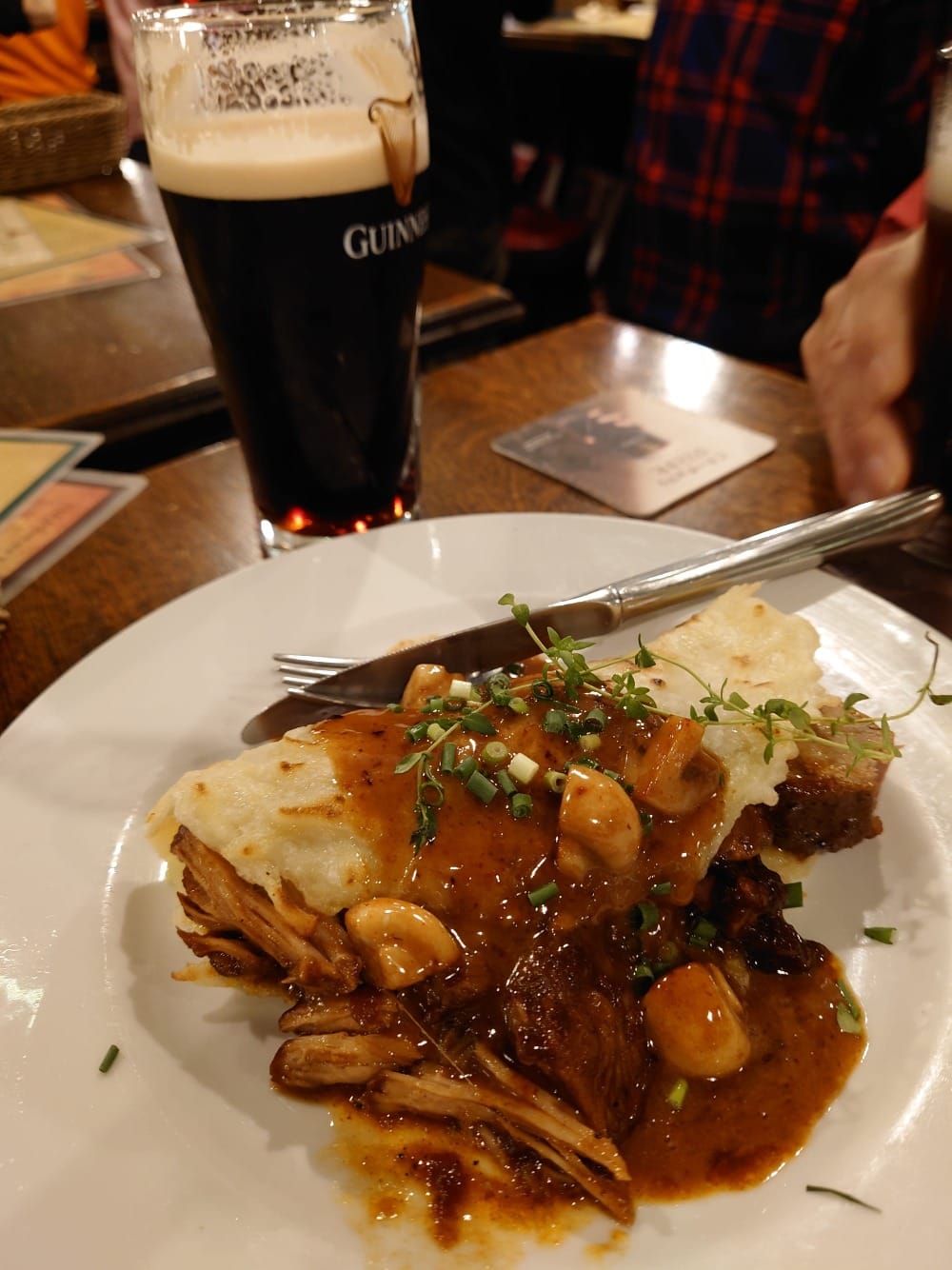
Craft a solid business plan and financial projections... unless you're letting Gen-AI run the show
Y: You also run Japan Hospitality Consultations (JHC), a consulting service for those who want to open an F&B business in Japan. Tell me about your services.
WR: What we do is assist in writing a business plan, making financial projections, finding a location, obtaining licenses while complying with F&B regulations and visas, etc.
Y: Not just financial projections, but is a good business plan necessary for F&B businesses?
WR: Oh, yeah. It is not just for the visa; it is your money and the time you're spending. You should be clear about everything: how long should it take to get the business on track, and you have to do it okay for immigration.
Some people use Gen-AI… but no, please! Don't do it. It's like you're only cheating yourself, my school teacher used to say. Many clients would say, 'Oh, I hate math,' but you have to hire someone who does it if you don't like it. Someone has to watch figures, anyway. The big advice I also give clients is that you should have at least three to six months of running costs because we can safely say it is a high-risk venture to undertake. While no one knows the exact number, many restaurants close in the first three years.
Some may think that the food was bad, or maybe they didn't work hard enough, but the reason is that they ran out of money.
You may think, 'Well, as soon as it's open, I'll start making money,' but the first year, your bills get higher and higher. So, you need to have enough money in reserve to keep going for the initial year.
Y: What a tough business.
WR: Well, it almost happened to us. In the first six months, we were really, really busy. It was our pub's honeymoon period. Everybody's coming to visit a new place, including our old customers. Before we opened the pub, we did ancient Japanese things, like sending postcards. But then, from six months to 18 months, it got so quiet. Like, way down, way down, and way down. Even remembering it now, I'm stressed out, and my hair has started to lose 🥲
It happens because your costs are really high when you're first opened. Suppliers like sakaya (beverage suppliers) will charge you the highest price. After ten or twelve months, money starts to disappear. Right? Because you get to keep going, the bills are coming — rent, utilities, sales tax, social insurance, staffing costs, etc.
Y: So, your advice is based on your experience.
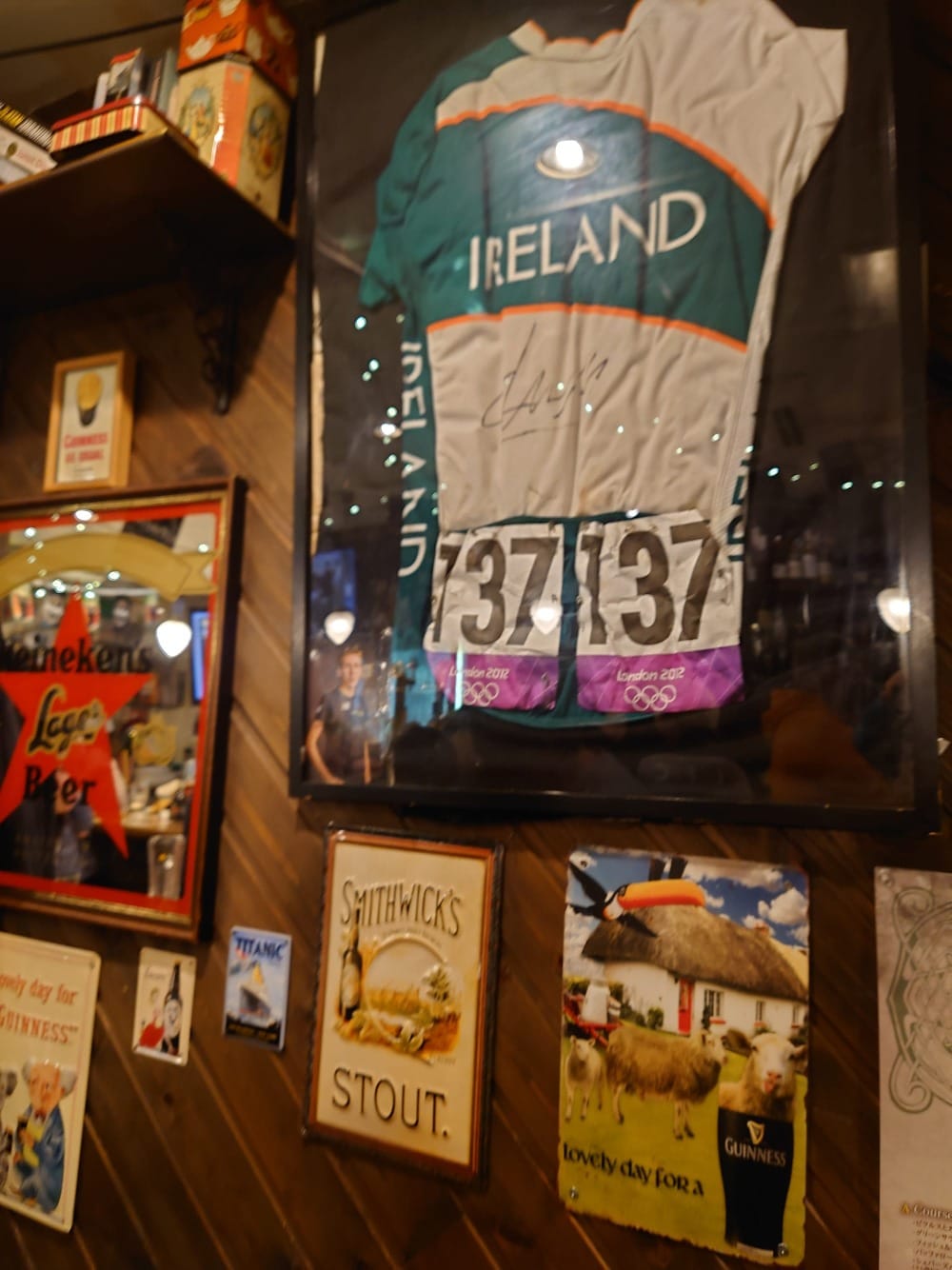
WR: Yes. The longer you're in business, the more likely you can negotiate and bring your prices down, but when the honeymoon period ends, what would you do? It happened to us. I and the chef wanted to take out another loan, but Chieko-san didn't want to. It was essential for me because my visa was through the business. Had the business gone, my visa would have gone. That was a big source of issues for us, but after all, we didn't borrow any of the money. We were working so hard that eventually, sales increased little by little every single day. We also renegotiated rent after one year, and the cost came down. We got very, very lucky.
That's why I tell so many people that if you have partners and want to open up a business before you invest any time or money, you should decide how much you will invest completely.
What happens when the final safety net money is gone? Do you borrow more money? Before you start the business, you must have these conversations and understand each other's mentality when it comes to things like this. At what point do we say no or stop it?
Is it really a good reason to open a bar or cafe?
Y: That's a harsh reality of the business. Still, many people want to open a cafe, restaurant, or bar, although the F&B business here in Japan is highly competitive.
WR: Well, many people think it's more glamorous than it is. That's different than preparing food at a home party, but opening on a Sunday morning, you've got 20 orders coming in, and you have to get everybody the food available within a limited time. However, a vast market is just out there. You can be successful.
In reality, I get a lot of emails from foreigners who want to open a restaurant or bar because they are tired of teaching English or just want to be in Japan. That's a really bad reason. I completely understand that they love Japan and are very tired of the current job, but it is really, really tough business to make a profit – just five to eight per cent in general Inshokutens (F&B) in Japan.
My first piece of advice is,
'If you want to open a coffee shop, okay, just go and work in a coffee shop for six months. Just try, and then please email me after that to see if you are serious.'
There are also many benefits to working even for six months. You can make some of your customers and meet the suppliers.
Knowing somebody in Japan is very important, as you are aware. When we started here, we knew all the food or liquor companies so we could contact them straight away.
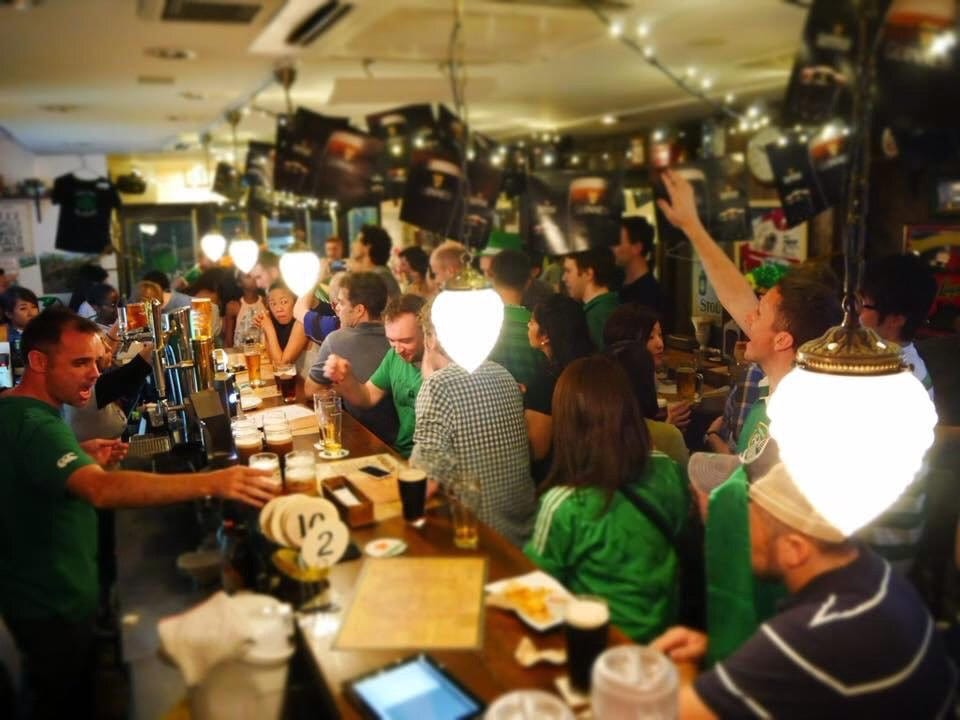
Y: When you started your pub, did you consult someone?
WR: An Italian friend who owns a very successful Italian restaurant asked me,
'What are the prices of toothpicks going to cost you?'
'What are you talking about?' I remember being so annoyed about it, but two days later, 'Oh, he's actually right.' I didn't know the cost of what I was going to do. Until then, I was only focused on cocktails, events, and talking to customers, and I was like, 'I'm going to show all the sports games, and my friends are going to come! It's going to be so cool!' I knew the pub's sales on a Friday night where I used to work, so 'Wow, I'm going to be rich. Look at all this money!' but I never thought about the costs until that thing, 'toothpicks'.
Y: That resonates with your advice to work at a cafe or restaurant for six months.
WR: Yeah. Half of the clients come back, and many of them haven't yet opened a restaurant or cafe. But it's okay, it's their choice after considering it seriously. I feel like that's me being a good Samaritan. I'm saving them a lot of money.
I also mention my experience of my family life when I meet couples who want to do it together. Opening the pub and my marriage happened almost simultaneously, and it was tough for my wife for the first three to four years, as I was working from 11 am to midnight, six days a week. And on my day off, I just wanted to sleep. It should have been our honeymoon period, but I was always working. So, I always ask the client's wife, 'Are you going to be okay because he will be working so much? You're going to be at home a lot by yourself.'
Don't let the paperwork scare you: Opening an F&B business in Japan
WR: I also help a lot in dealing with real estate agencies. I know questions to ask. For example, our client paid the key money for one month but needed construction work for about two months. So, we asked the landlord for two months' free rent while the construction was working. The landlord was, 'Yeah, okay.' You must ask that the same day after you fully transfer money to their bank account. It's very hard for the landlord to say no, right?
In another case, one of my most recent clients couldn't get the place to sign until she had a proper business visa because her existing visa was for an eikaiwa. Still, she wanted to change it to a Business Management visa. But to get a Business Management visa, she needed the location, but the landlord wanted to see her correct visa…. It's like a 'Catch-22' situation. However, In this case, we talked to the landlord directly, not the agent, explaining what was happening. He was nice to agree and sign the contract, eventually.
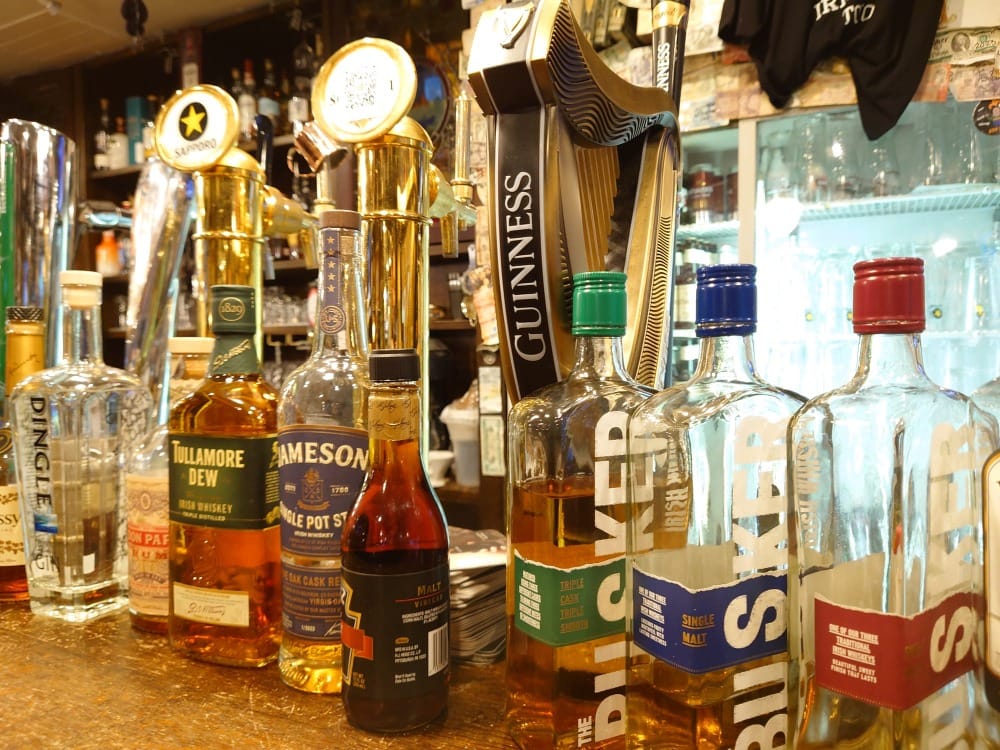
Y: I find many hurdles for foreigners doing business here, and sometimes very discouraging.
WR: When I meet a client for the first time, I try to tell them to concentrate on today and what you can do about it.
If you look at the whole thing, it's very, very discouraging, particularly visas. But once it's open, it gets much easier. There'll be far less paperwork for you to do. And you'll be left alone; you can do whatever you want. If I want to open 24 hours, I just have to apply for an after-midnight license, whereas in Ireland, if you want to run a pub, it's a lot more expensive and much stricter on what you can sell and what time you can open and close.
Also, Japanese customers are extremely loyal. They really are. We've had the same customers for 10 years now. Say you come with your friend, and the next night, your friend brings another friend, and it grows and grows and grows.
Our motto is to make one new regular customer every day. Just keep that going. I wouldn't like relying on tourists or big company nomikais (drinking). So, I'd advise you to consider having regular customers. And knowing your costs again is very important.
Y: So, that's how you survived COVID; it has become a very important lesson.
WR: Yes. Your regular customers will always come back. Any Irish pub in Ireland is only as good as its regular customers. That's why we have such a big counter. It's for regular customers to sit. Some of our joren-san (regular customers) who live in the same building didn't know each other before we opened, and they met here. In the evening, people finish work and just have one drink before they go home.
What I've always liked about pubs is it doesn't matter if you're the CEO of a big company or just an eikaiwa teacher. Everybody's the same in a pub. In Ireland, especially in the countryside areas, pubs are vital. Guys live by themselves, and drinking at pubs is the only time to get to talk to somebody. And if he doesn't come in on a Friday night at his usual time, people will know something's wrong, and we need to check on him.
And to be honest, because I'm working for myself in Japan, it's nice. Maybe I'm too Irish or very ganko (stubborn).
Y: You'll never be bored if you work for yourself!
WR: Never.
